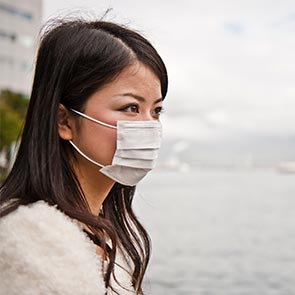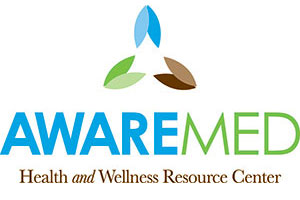Severe Acute Respiratory Syndrome (SARS) Specialists in Bristol, VA

*WARNING: this condition is potentially life-threatening. If you or someone you know is experiencing these symptoms, don't wait. Call 911 or go to the nearest emergency room right away. *
Everyone gets the flu every now and then. But if you have a dry cough or other flu-like symptoms after returning from Asia, it may be severe acute respiratory syndrome (SARS), a potentially life-threatening respiratory infection and infamous disease.
SARS caused an international medical emergency in early 2003 when about 8,000 people came down with the infection. It spread from Hong Kong to 26 countries and killed almost 800 patients, including people in Europe, Canada, and Southeast Asia.
While the outbreak was contained in 2004 and no cases have been reported since that time, it's possible that the SARS virus may still be active. If you have SARS symptoms in Bristol, call (423) 482-8711 or contact Dr. Dalal Akoury online to get medical attention right away, as SARS can make breathing difficult and cause pneumonia, heart failure, or liver failure.
What are the symptoms of SARS?
Severe acute respiratory syndrome causes a dry, hacking cough that appears within two to seven days after contracting the virus. This cough can deprive your body of sufficient oxygen, making breathing difficult or even impossible; about 1 in 10 patients with SARS need a breathing machine.
Other SARS symptoms closely resemble those of a typical cold, flu, or upper respiratory infection:
- fever over 100.4 F (38 C)
- sneezing and sniffling
- sinus congestion
- headache
- body aches
- sore throat
- diarrhea (in some patients)
What causes SARS?
The SARS disease is caused by a viral infection. The virus comes from a group of coronaviruses—the same that cause the common cold. The virus takes over your body's cells, using them to make copies of itself.
When an infected person coughs or sneezes, they release droplets containing the virus. If you inhale enough of these droplets, you may become infected too. If the virus lands on objects like doorknobs, pens, keyboards, you can also become infected if you touch those objects and put your hands near your mouth, nose, or eyes before washing them first.
Can SARS kill me?
In many cases, SARS cannot kill you. However, some patients - especially the very old, the very young, and people with compromised immune systems (such as HIV/AIDS patients) - have a greater risk of dying from severe acute respiratory syndrome. Patients with chronic illnesses like diabetes or hepatitis are also at an increased risk of developing severe symptoms like pneumonia, heart failure, and liver failure. If you suspect you have SARS, getting emergency medical attention is crucial even if you aren't a high-risk patient.
How is SARS diagnosed?
To diagnose SARS, your medical provider will first ask whether you, a family member or a co-worker has recently traveled to Asia. You'll also be asked whether you work in a medical laboratory or in healthcare. If not, then it's extremely unlikely you have SARS.
If you answered yes to one of these questions, a SARS infection may be possible though very unlikely. To confirm or rule out the disease, your medical provider will draw blood to search for SARS antibodies and give you a CT scan to get images of your lungs.
How is SARS treated?
There's currently no cure for SARS. Your treatment will depend on how severe your symptoms are. If you have a mild infection, you'll likely recover at home, where you'll be advised to treat your symptoms just like you'd treat a cold or the flu:
- by getting lots of rest
- drinking plenty of fluids
- humidifying the air
- avoiding smoking
Taking over-the-counter medications like acetaminophen (Tylenol) and ibuprofen (Motrin) to relieve pain and congestion is also useful; side effects can include nausea and dizziness. Your physician may give you antibiotics to help fight off other infections while you're recovering, but this isn't commonly done unless you're at a high risk for developing other infections; side effects include diarrhea and upset stomach.
If your symptoms become severe, you'll likely be admitted to the hospital for extra care. You'll be given fluids and oxygen while your condition is carefully monitored. While SARS is serious, according to the Centers for Disease Control and Prevention, the 774 of the 8,098 people worldwide infected in 2003 died, though none of those who died were in the United States.1
Homeopathy medications used to treat SARS include:
- belladona
- arsenic album
- natrum sulphuricum
- phosphorus
- chelidonium majus
- lachesis
Licorice root may also treat SARS, as studies have shown that the glycyrrhizin in it can fight the virus by increasing cell membrane protection, increasing T-cell activity, and preventing the virus from hiding from the immune system and attacking later (latency).
You can protect yourself against severe acute respiratory syndrome by:
- washing your hands often with soap and water
- frequently using hand sanitizer
- disinfecting surfaces and objects if someone in your home is infected
- wearing a surgical mask around people with SARS
Reserve Your Appointment Now
SARS typically isn't a threat in today's world. Still, if you or someone you know is showing flu-like symptoms or symptoms of SARS, get medical attention immediately. Severe acute respiratory syndrome can be dangerous or even life-threatening in certain circumstances.
To speak with a SARS specialist today in Bristol, call (423) 482-8711 or contact Dr. Dalal Akoury online.
Sources:
1. "Revised U.S. Surveillance Case Definition for Severe Acute Respiratory Syndrome (SARS) and Update on SARS Cases --- United States and Worldwide, December 2003." Morbidity and Mortality Weekly Report (MMWR). Centers for Disease Control and Prevention, 12 December 2003. Web. 18 July 2018.
AWAREmed Health and Wellness Resource Center
Address
1604 Lamons LaneSuite 202
Johnson City, TN 37604
(423) 482-8711
www.awaremed.com
Hours
Mon:
9:00 am - 5:00 pm
Tue:
9:00 am - 5:00 pm
Wed:
9:00 am - 5:00 pm
Thu:
9:00 am - 5:00 pm
Fri:
9:00 am - 5:00 pm


